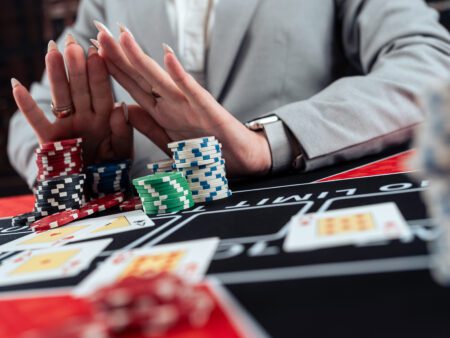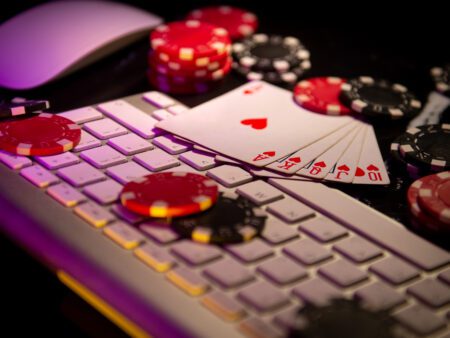Dive deep into the fascinating waters of gambling routines and explore how the world of online gaming hooks onto our psychological brain systems in ways more intimate than we can imagine.
The Hidden Psychology of Gambling Routines: A Deep Dive
Once upon a time, in a small town nestled somewhere in the Great Plains, I found myself losing a game of poker to the town’s elderly, a group not known for their card-sharp ways. The question, which tickled the neurons in my brain that night, still lingers: ‘How was it even possible?’ The answer, as I’ve since learned, traverses the wondrous landscape of the human psyche and its intricate relationship with the captivating world of online gambling. Surprised? Did you know that 65% of online gamblers report their activities as a form of psychological escape?
The Psychological Grip of Online Gambling
‘Just one more game’, the gambler tells himself, ‘then I’ll log off.’ But, as the game sequences flicker across the screen, they massage the impish part of the brain – the limbic system. Curious, huh? We are not just playing the games; we are being played by them. A combination of graphics, sounds, and win sequences speaks in whispers to our reward system, building a timeless space where screens glow and hearts race.
Consider slot games. ‘They’re like a looped hypnosis session,’ a friend once quipped. ‘Each spin is a shot at validation, and when you win… Ah! The dopamine surge! It’s incredible.’
The Emotional Rollercoaster
‘Boom! It’s a win! And just like that, endorphines flood your system, a toast to your competence and potency. But, lo and behold, the next moment, you’re down. Suddenly, it feels like the world is ending.’ These are not my words; they are from a gambler describing the emotional teeter-totter that online gambling can often be.
Like the powerful ebb and flow of the ocean, this rollercoaster ride manages to grip us in a trance-like state, where rationality is cast aside and we’re paddling incessantly in a sea of ‘what if’s and ‘maybe this time’s. This emotional typhoon, while intimidating for a spectator, can be a rather enchanting pull for the player, as it fulfills a human tendency to seek excitement and emotion extremes.
Building False Confidence
A series of wins – that’s all it takes for our brain to foster an illusion of expertise. Neuroscience calls this the ‘illusory superiority’ – a cognitive bias where a person overestimates their skills. For the gambler, this could translate to unwarranted confidence in their betting strategies or an unshakeable trust in lady luck’s favor.
While winning streaks can bring a temporary adrenaline rush, the notion that every move we make gets us closer to the jackpot is seductively deceptive. The technological craftsmanship behind these games cleverly simulates a sense of progression and control, bypassing the fundamental fact of pure randomness.
Staying in Control
When the enchanting world of online gambling starts dictating our choices instead of offering them, it’s time for introspection. Noticing our response patterns, understanding the mechanics of games, and setting boundaries can promote healthier gambling habits. Remember, online gambling is here for entertainment, not as a portal for emotional escape or a platform to defy mathematical probabilities.
As the dopamine surge from my improbable win against the elderly poker maestros slowly settled, the realization dawned: The house doesn’t always win; it’s the game that always does. It’s why we keep playing, searching for those exhilarating moments of triumph in a sea of near-misses and almost-theres.
Embrace the thrill, but don’t let the game play you. After all, even in the most immersive game, the exit button is just a click away.










